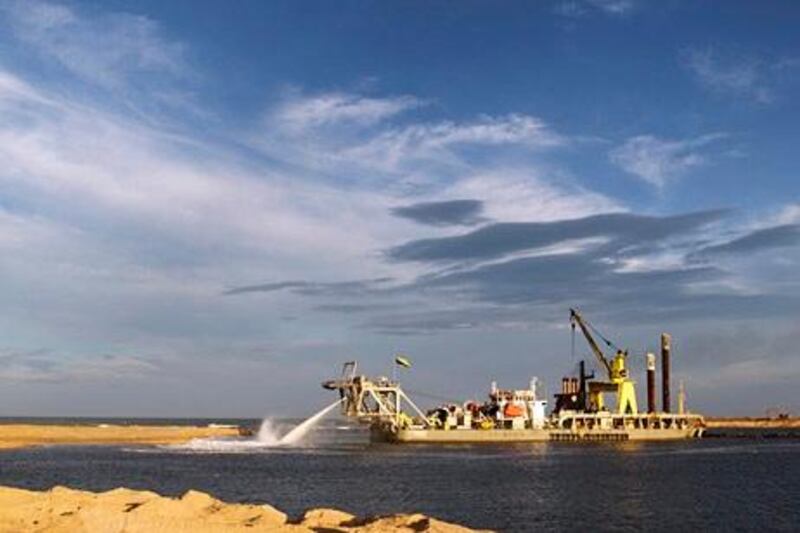Deals by sovereign wealth funds in the Arabian Gulf and European multinational corporations helped investment bankers to their most active year for mergers and acquisitions (M&A) since the start of the global financial crisis.
M&A deals in the Middle East doubled during last year compared to a year earlier, reaching US$20 billion (Dh73.46bn) by the end of the year, data from Thomson Reuters shows. The total transaction value was the highest level since 2008.
Investment banking fees rose by 19 per cent during last year compared with a year earlier to $536.1 million, led by $185m in fees reaped from syndicated lending.
Cross-border acquisitions returned to the region after being sapped by the global financial crisis, said Russell Haworth, the regional managing director at Thomson Reuters.
“The United Kingdom is the most popular target for outbound Middle Eastern M&A transactions, followed by Brazil and India,” he said. “Egypt was the most targeted Middle Eastern country during 2012, while Qatar was the most active Middle Eastern acquirer.”
Mubadala Development Company, a strategic investment company owned by the Abu Dhabi Government, topped the deal rankings with a $2bn investment in Centennial Asset Brazilian Equity Fund, owned by Eike Batista's EBX Group. The deal was a landmark transaction, and one of the biggest deals ever undertaken by a Middle Eastern investment company in Brazil.
Despite investor fears that Egypt's turbulent political climate could make the country a hard sell, mergers and acquisitions there accounted for 28.8 per cent of the region's total.
Qatari firms were frequent buyers, accounting for 38.3 per cent of all deals, as Qatar National Bank (QNB) and Qtel set off on acquisition sprees across the region. QNB's $1.9bn takeover of National Société Générale Bank, the Egyptian arm of France's second biggest lender, was the year's biggest acquisition target in the region.
Local investment banks struggled to fight their way on to the biggest M&A deals, with only Qatar’s QInvest and Samba Capital appearing among the top banks for fees.
Top Wall Street firms including Goldman Sachs, Credit Suisse, Barclays and Morgan Stanley dominated advisory on the big ticket deals, including Qtel’s acquisition of Wataniya Telecom and QNB’s acquisition of NSGB.
Those banks able to pull off complex transactions of that sort still tended to outgun local lenders, said one banker at a Gulf financial firm, speaking on condition of anonymity.
“A lot depends on who you are. For M&A, regional banks struggle to make money off that. For corporate banking and other lending activity, [companies] don’t like to pay as much for that type of advice,” the banker said. “For cross-border deals, there’s still acceptance that you to have to pay big money.”
An acquisition of BP's North Sea assets by Abu Dhabi National Energy Company, also known as Taqa, and Qatar Holding's purchase of a 20 per cent stake in Heathrow Airport, contributed to the UK's position as the top focus for Middle Eastern deal making.
Bargain hunters in Egypt took advantage of depressed valuations and a falling currency to make big investments. The UAE, Kuwait and Iraq were the next biggest target countries for M&A.
[ ghunter@thenational.ae ]





